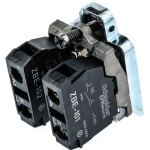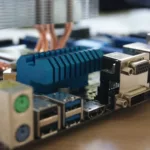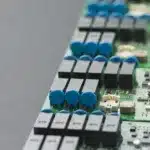
In electronics testing and development, programmable AC power sources play a significant role in evaluating the performance and reliability of electrical equipment. These power sources allow engineers to simulate various operating conditions, voltage fluctuations, and harmonics that the equipment may encounter in real-world scenarios. Emulation systems have been developed to enhance these power sources’ capabilities, providing greater flexibility, accuracy, and efficiency in testing and validating electronic devices.
This article comprehensively overviews an emulation system’s features, significance, benefits, applications, and future innovations for programmable AC power sources.
Understanding Emulation Systems for AC Power Sources: Purpose, Significance, and Application Areas
An emulation system for programmable AC power sources refers to a setup or device designed to mimic or replicate the crucial AC power source behaviours. It is primarily employed in situations involving testing and validation, where there may be limitations or undesirability regarding the availability or properties of an actual AC power source. For instance, the laboratory’s advanced emulation systems for AC power sources and AC power supply voltage allow precise testing and analysis of electrical devices under various operating conditions.
The primary purpose of an emulation system is to provide a controlled and programmable output, allowing users to define and customize the simulated power source’s various parameters. It enables users to reproduce specific voltage, frequency, phase angle, harmonic content, and other electrical characteristics associated with AC power sources. Additionally, they also provide advanced features like transient generation, harmonic analysis, and fault simulation, further enhancing their usefulness in the testing and validation process.
Emulation systems are commonly used in various industries, including electronics manufacturing, automotive, aerospace, and renewable energy. They are primarily deployed for testing and validating electrical equipment in applications where emulating real-world AC power conditions is necessary. AC power supply emulators are beneficial in developing and testing electrical and electronic devices, such as power supplies, inverters, motor drives, and other equipment that rely on AC power.
Potential Benefits and Features of Programmable AC Power Sources Emulation
Emulation systems in power source testing offer several benefits and features, such as:
- Enhanced Flexibility
The emulation system for AC power sources offers enhanced flexibility by enabling engineers to emulate a wide range of operating conditions. The system creates custom test scenarios by providing a programmable interface, ensuring comprehensive electronic device testing under different conditions. This flexibility identifies and rectifies potential issues before the equipment is deployed in real-world applications.
- Accurate Replication of Real-World Conditions
One of the key advantages of an emulation system is its ability to replicate real-world conditions accurately. It employs advanced algorithms and models to emulate complex power disturbances, such as voltage sags, swells, interruptions, and waveform distortions. By accurately reproducing these conditions, engineers can evaluate the electrical equipment’s performance in a controlled environment. This ensures compliance with regulatory standards and improves overall product reliability.
- Safety and Risk Mitigation
Power source testing can involve potentially hazardous conditions, especially when dealing with high voltages or complex system interactions. Emulation systems provide a safer testing environment by eliminating or minimising the risks associated with physical power sources. Test engineers can perform experiments and evaluate power system behaviour without exposing themselves to potential dangers, reducing the likelihood of accidents or equipment damage.
- Dynamic Response and Transient Testing
The emulation system excels in dynamic response and transient testing, which is crucial for assessing the performance of power electronic devices. It can generate fast and precise voltage and frequency changes to mimic rapid load variations and transients that electronic devices may experience. This capability allows engineers to evaluate the equipment’s response to sudden changes in operating conditions and ensure its stability and reliability.
- Harmonic Analysis and Distortion
Harmonics and waveform distortions are common in electrical power systems and can significantly affect the performance of sensitive electronic devices. The emulation system incorporates advanced harmonic analysis algorithms to accurately replicate harmonic distortions and evaluate their impact on equipment performance.
- Efficiency and Cost Savings
Emulation systems offer significant efficiency and cost savings in testing and validation. Engineers can perform multiple tests with different operating conditions without additional hardware setups by utilising programmable AC power sources. This saves time required for testing and eliminates the need for physical prototypes, resulting in cost savings and accelerated product development cycles.
- Remote Control and Automation
Modern emulation systems often provide remote control and automation capabilities to perform tests and monitor equipment performance from a centralised location. This feature facilitates collaboration among geographically distributed teams and allows continuous testing and monitoring. Remote control and automation streamline the testing process, improve productivity, and enable round-the-clock operation.
Future Trends and Innovations of AC Power Source Emulation
AC power source emulation can drive innovations across multiple domains, including electric vehicles, power electronics, grid resilience, and research advancements. It offers a cost-effective and efficient way to evaluate and optimise electrical systems, leading to the development of more sustainable, reliable, and efficient energy solutions in the future.
The Bottom Lines
An emulation system for programmable AC power sources serves as a multipurpose tool for engineers and researchers to simulate realistic AC power scenarios. It ensures the robustness and performance of its electrical and electronic systems, offering numerous advantages in power source testing. Engineers can conduct thorough and accurate power system testing by leveraging its benefits, improving product performance and reliability. Last but not least, emulation technology has the potential to pave the way for the advancement of more sustainable, dependable, and efficient future energy solutions.





















